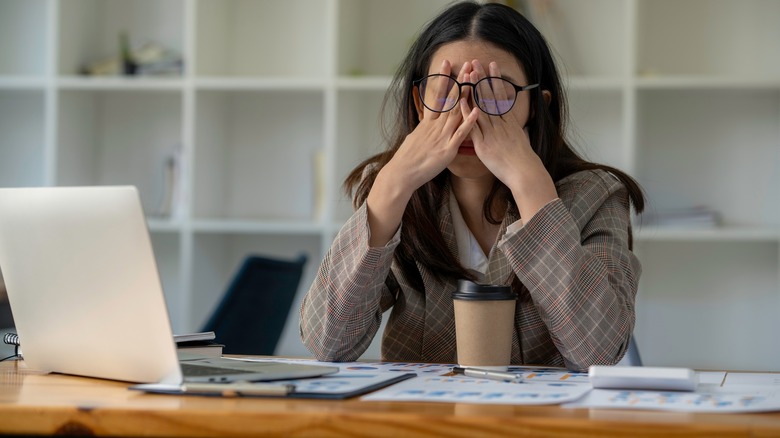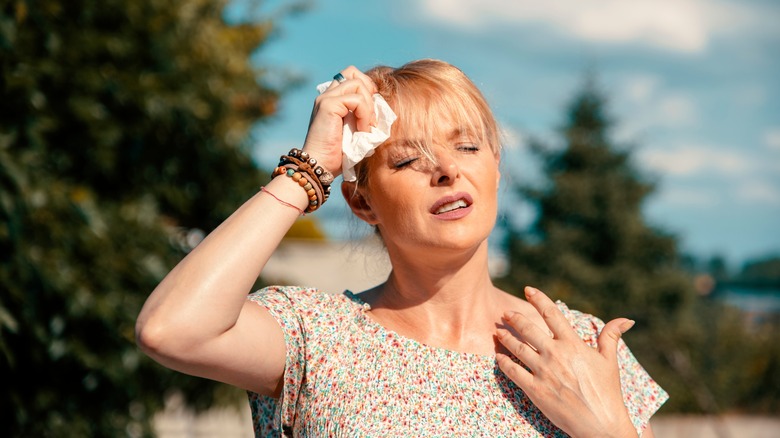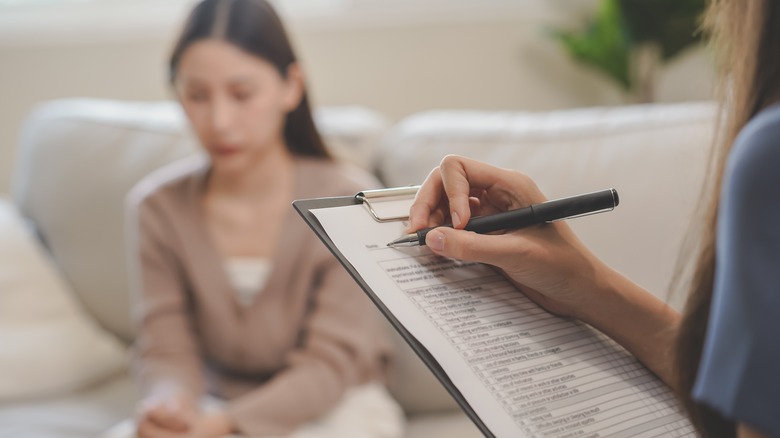Why You May Be Feeling More Depressed After Ovulation
Many women can attest to the myriad of symptoms that may accompany ovulation, whether the symptoms are physical or mental. Ovulation is the process that happens when ovaries release a mature egg that is ready to be fertilized, signaled by hormonal changes, explains Healthline. It travels through the fallopian tubes, waiting to be fertilized by sperm. It typically occurs around once a month, although it can happen more than once a month and sometimes not at all.
Many people talk about the physical symptoms of ovulation, including tender breasts, bloating, cramps, body temperature changes, and clear cervical mucus, according to WebMD. However, not many people discuss the mental side of ovulation, which for some people can involve increased anxiety or even depression.
It's estimated that 5 to 10% of fertile women are affected by a disorder called Premenstrual Dysphoric Disorder (PMDD) according to the University of North Carolina. It can cause severe mood swings that interfere with daily functioning, and it tends to begin at some point after ovulation — and, for some people, immediately after. But what causes depression after ovulation?
Hormones play an important part
Fertility is complicated and how it affects the body can be even more so. In fact, researchers aren't even sure exactly what causes mood swings during a woman's menstrual cycle.
However, it's clear that hormones play a role. The levels of a woman's hormones change during their menstrual cycle, going up or down. This fluctuation can even affect certain other hormones that correlate with depression and anxiety – dopamine and serotonin, according to Healthline.
Healthline notes that as estrogen levels drop after ovulation, so do the levels of dopamine and, in some cases, serotonin. These hormone changes "can lead to mood swings, irritability, anger, and weepiness. For some women...it's like a debilitating, albeit short-lived, depression," said psychotherapist Shana Averbach, speaking with Romper.
How long the depression persists, and the severity of it, can range between women depending on underlying health conditions or history of depression not related to ovulation.
Therapy and medication can treat depression
If depression only occurs during and after ovulation, it will most likely pass once your cycle ends. However, that doesn't mean it is easy dealing with bouts of depression every month.
If it's something negatively impacting a woman's life, she can seek out therapy to help manage stress and learn coping techniques that may prove useful, explains Healthline. Exercising, meditation, and breathing exercises can all help you with your depressive symptoms.
Medication can also be of some benefit and can be used as directed by your doctor. Research from the American Journal of Obstetrics and Gynecology noted that medication called selective serotonin reuptake inhibitors can help treat the symptoms of PMDD.
If you're having less intense bouts of depression, but still feel blue during ovulation, you can try natural treatments under the guidance of your doctor, such as vitamin B6, magnesium, and calcium supplements (per Healthline).
If you or someone you know needs help with mental health, please contact the Crisis Text Line by texting HOME to 741741, call the National Alliance on Mental Illness helpline at 1-800-950-NAMI (6264), or visit the National Institute of Mental Health website.



